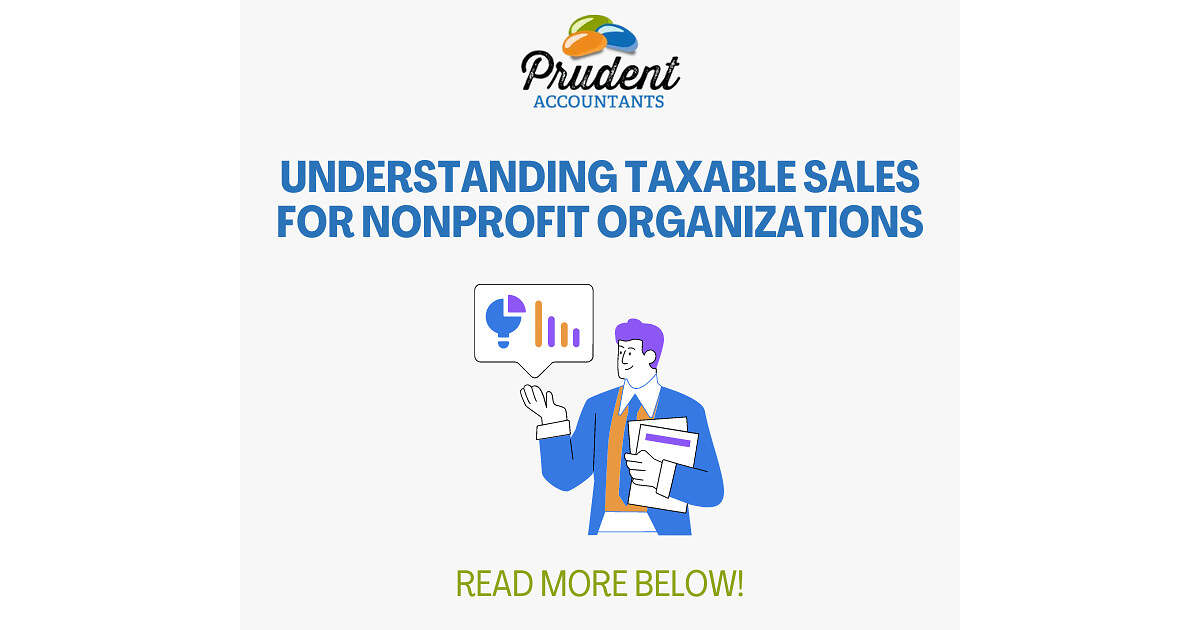Understanding Taxable Sales for Nonprofit Organizations

Nonprofit organizations play a crucial role in our communities, often engaging in various activities to support their mission and generate revenue. However, when it comes to taxable sales, nonprofits need to understand their responsibilities and ensure compliance with applicable tax laws. In this blog post, we will explore the concept of sales for nonprofit organizations and shed light on important considerations regarding exemptions and local sales taxes.
Taxable Sales for Nonprofit Organizations:
Any nonprofit organization that engages in taxable sales must collect and pay taxes on those sales, unless specific exemptions apply. It’s important to note that taxable sales encompass a range of activities and transactions. Let’s take a closer look at some common examples:
Gift Shop Sales at a Nonprofit Museum:
Nonprofit museums often operate gift shops where visitors can purchase various items such as souvenirs, books, or artwork. These sales are considered taxable unless an exemption applies.
Sales of Used Furniture, Appliances, and Other Items:
Nonprofits may run thrift stores or similar operations where they sell donated or used items. These sales are generally taxable unless an exemption is applicable.
Sales of Taxable Literature to Members:
Nonprofit organizations may offer publications like books, manuals, or CDs to their members on a regular basis. These sales are subject to tax unless a specific exemption applies.
Exemptions and Forms:
Nonprofit organizations may qualify for certain exemptions that relieve them from collecting and paying taxes on tax sales. Some exemptions include:
Fundraising Sales Exemption:
Some states have fundraising exemptions that apply to certain sales made by nonprofit organizations during fundraising events. It’s important to consult the specific rules and regulations of your state to determine if this exemption is applicable.
Other Exemptions:
Nonprofits may be eligible for additional exemptions based on factors such as the nature of the organization, the type of sales, or the purpose of the sales. Familiarize yourself with the exemptions available in your jurisdiction and determine if your organization meets the requirements.
To claim an exemption, nonprofits must typically provide the appropriate documentation to their suppliers or tax authorities. This may include a completed Form ST3, Certificate of Exemption, which indicates the specific exemption being claimed, such as the Resale exemption for inventory items.
Understanding taxable sales and the associated responsibilities is crucial for nonprofit organizations. By familiarizing themselves with applicable exemptions, completing the necessary forms, and staying informed about local sales tax requirements, nonprofits can ensure compliance and effectively manage their tax obligations.
If you have further questions or need specific guidance, consult with our tax professionals at Prudent Accountants or visit the website of Minnesota Department of Revenue Taxable Sales | Minnesota Department of Revenue (state.mn.us).








